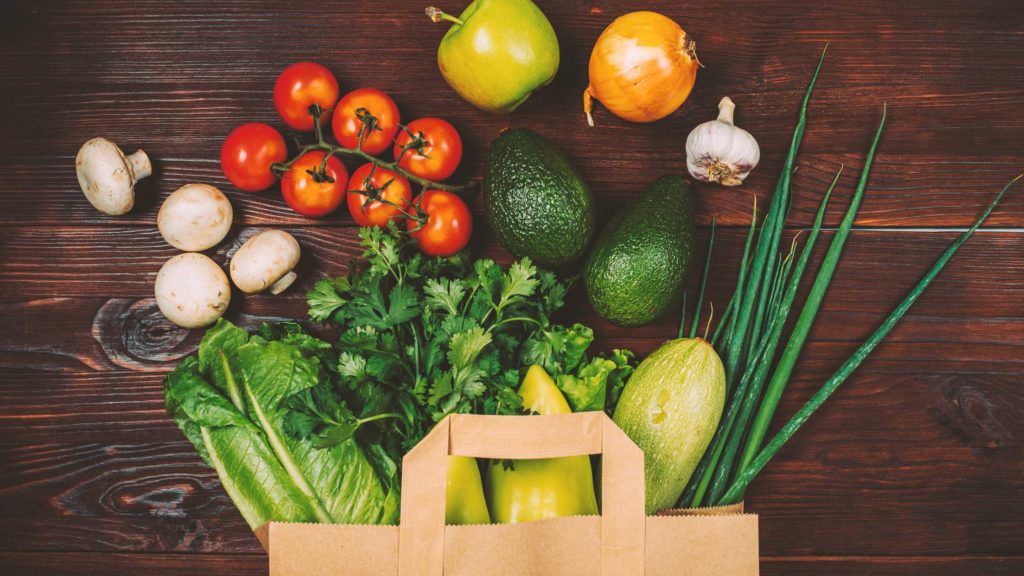Menu
Download our mobile app
today for exclusive savings and rewards!
today for exclusive savings and rewards!
Get Prepared for Easter with Fresh Farms | Now Available Baby Lambs
(Please Ask Our Meat Department For Assistance. Available at all stores except for Devon Ave)

When we visit a grocery store or a local farmers’ market, It’s overwhelming when there are many colorful and fresh produce options. You might have noticed labels like “organic” and “conventional” on fruits and vegetables. But what do these terms mean, and how do they affect choices?
Today, we aim to highlight the critical differences between organic and conventional produce.
Whether you’re a beginner looking to explore healthier options or curious about the difference between these two, this article will provide valuable insights to help you make informed decisions at the grocery store or the local market.
Organic produce refers to fruits and vegetables grown using natural methods. This means free from synthetic pesticides, herbicides, and genetically modified organisms (GMOs).
Farmers use environmentally friendly practices instead of relying on chemicals to nurture the soil and support plant growth. You can enjoy shopping for organic foods on a budget!
Since this produce is sustainable and eco-friendly, they may employ crop rotation. Additionally, they use natural compost and manure to improve soil health. It encourages the growth of healthy, robust plants.
To be labeled as “organic,” produce must meet strict standards set by government organizations.
In the US, for example, the United States Department of Agriculture (USDA) oversees organic certifications. Farmers undergo rigorous inspections to ensure they follow organic farming practices.
Conventional produce refers to crops that grow through traditional farming practices.
Farmers use various techniques to protect crops from pests and boost growth. These methods have been used for a long time and are considered standard in the agriculture industry.
In conventional farming, farmers may also use genetically modified organisms or GMOs. These are plants whose DNA has been altered in a lab. It makes them more resistant to pests or diseases. They are deemed safe by the government, too.
After comprehending the difference between the two types of produce, it’s time to create a sustainable meal plan for your family! Take a closer look at why you should choose organic fruits and vegetables.
Conventional options have long been the go-to for many consumers when choosing fresh produce. Here are some reasons you’ve got to try this fresh product out.
When it comes to choosing between organic and conventional produce, there are four factors you should consider to make informed decisions.
When selecting fresh produce, always think about your well-being.
Studies have suggested that consuming organic fruits and vegetables may lower the risk of pesticide-related health issues.
Conventional produce, on the other hand, may contain traces of pesticides. However, you can thoroughly wash these fruits and vegetables to reduce this exposure.
Organic farming might be the way to go if you are concerned about the environment and want to support sustainable practices.
By choosing organic produce, you support farmers who adopt eco-friendly practices, benefiting both the planet and future generations.
Conventional farming has also made strides in adopting sustainable practices. Some implement integrated pest management (IPM) strategies to minimize chemical use.
Organic produce tends to be more expensive than conventional options. If you are on a tight budget, it might be challenging to afford organic fruits and vegetables regularly.
In such cases, don’t worry! Conventional produce can still be a healthy choice and provide valuable nutrients.
Buying locally-grown produce, whether organic or conventional, can positively impact your community.
Local farmers often offer fresh, seasonal produce, and your purchases contribute to the local economy.
Both organic and conventional produce come with their own set of differences. To make informed decisions about what’s best for you, use this guide for awareness and align it with your lifestyle.
To achieve a balanced approach to fresh produce options, consider Fresh Farms. You can find a diverse range of organic and conventional produce.
We give you the flexibility to choose based on your preferences and needs so you can help create a more sustainable food system.
Eat well.
Save time.
Live better.